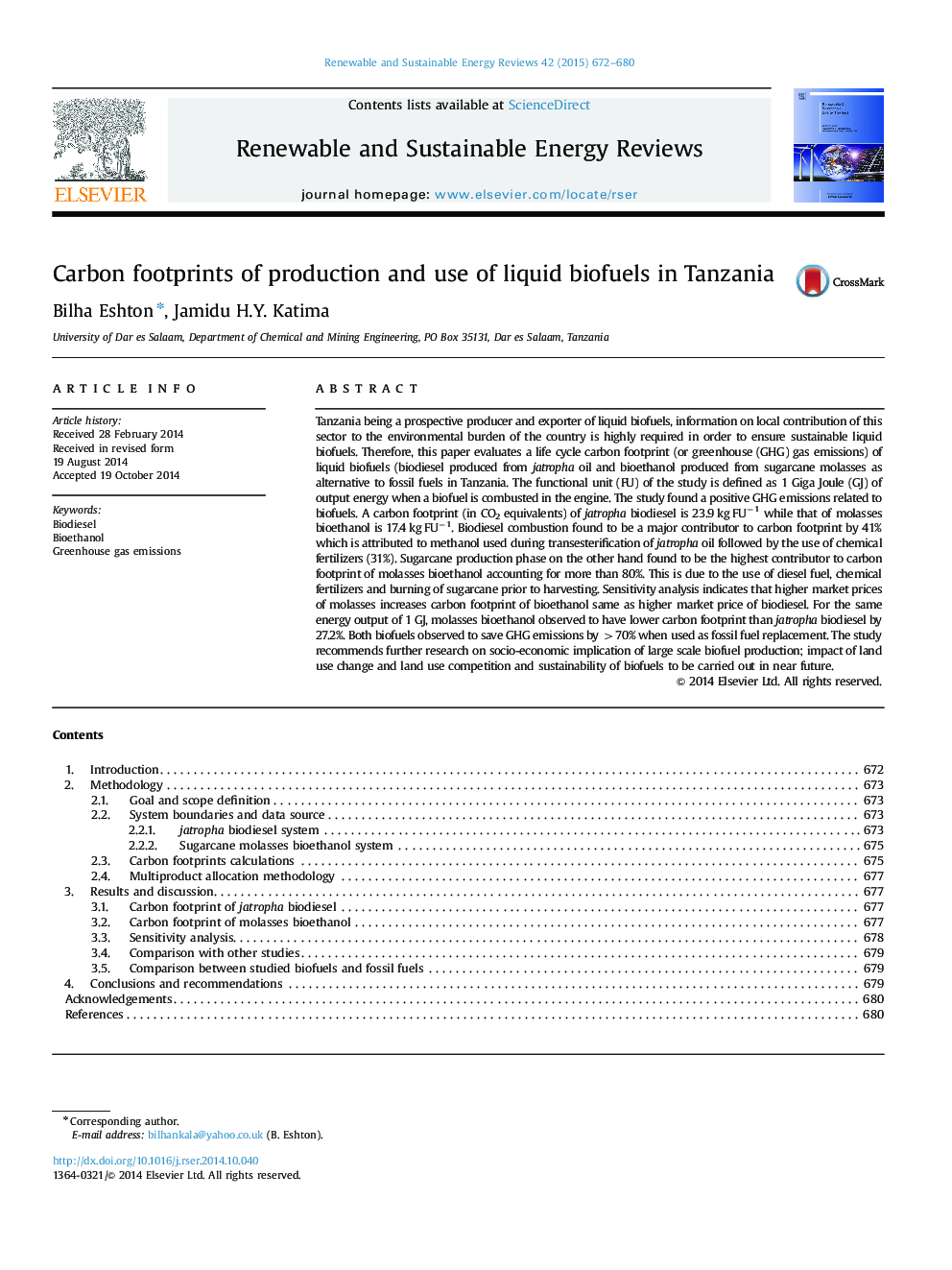| کد مقاله | کد نشریه | سال انتشار | مقاله انگلیسی | نسخه تمام متن |
|---|---|---|---|---|
| 8117930 | 1522343 | 2015 | 9 صفحه PDF | دانلود رایگان |
عنوان انگلیسی مقاله ISI
Carbon footprints of production and use of liquid biofuels in Tanzania
ترجمه فارسی عنوان
ردیابی کربن تولید و استفاده از سوخت های زیستی مایع در تانزانیا
دانلود مقاله + سفارش ترجمه
دانلود مقاله ISI انگلیسی
رایگان برای ایرانیان
کلمات کلیدی
بیودیزل، بیوتکنول، انتشار گازهای گلخانه ای،
موضوعات مرتبط
مهندسی و علوم پایه
مهندسی انرژی
انرژی های تجدید پذیر، توسعه پایدار و محیط زیست
چکیده انگلیسی
Tanzania being a prospective producer and exporter of liquid biofuels, information on local contribution of this sector to the environmental burden of the country is highly required in order to ensure sustainable liquid biofuels. Therefore, this paper evaluates a life cycle carbon footprint (or greenhouse (GHG) gas emissions) of liquid biofuels (biodiesel produced from jatropha oil and bioethanol produced from sugarcane molasses as alternative to fossil fuels in Tanzania. The functional unit (FU) of the study is defined as 1 Giga Joule (GJ) of output energy when a biofuel is combusted in the engine. The study found a positive GHG emissions related to biofuels. A carbon footprint (in CO2 equivalents) of jatropha biodiesel is 23.9 kg FUâ1 while that of molasses bioethanol is 17.4 kg FUâ1. Biodiesel combustion found to be a major contributor to carbon footprint by 41% which is attributed to methanol used during transesterification of jatropha oil followed by the use of chemical fertilizers (31%). Sugarcane production phase on the other hand found to be the highest contributor to carbon footprint of molasses bioethanol accounting for more than 80%. This is due to the use of diesel fuel, chemical fertilizers and burning of sugarcane prior to harvesting. Sensitivity analysis indicates that higher market prices of molasses increases carbon footprint of bioethanol same as higher market price of biodiesel. For the same energy output of 1 GJ, molasses bioethanol observed to have lower carbon footprint than jatropha biodiesel by 27.2%. Both biofuels observed to save GHG emissions by >70% when used as fossil fuel replacement. The study recommends further research on socio-economic implication of large scale biofuel production; impact of land use change and land use competition and sustainability of biofuels to be carried out in near future.
ناشر
Database: Elsevier - ScienceDirect (ساینس دایرکت)
Journal: Renewable and Sustainable Energy Reviews - Volume 42, February 2015, Pages 672-680
Journal: Renewable and Sustainable Energy Reviews - Volume 42, February 2015, Pages 672-680
نویسندگان
Bilha Eshton, Jamidu H.Y. Katima,
